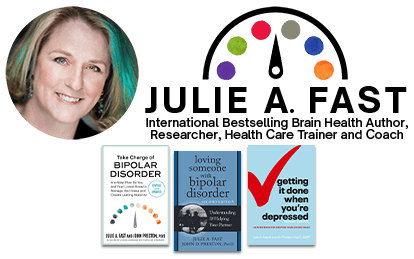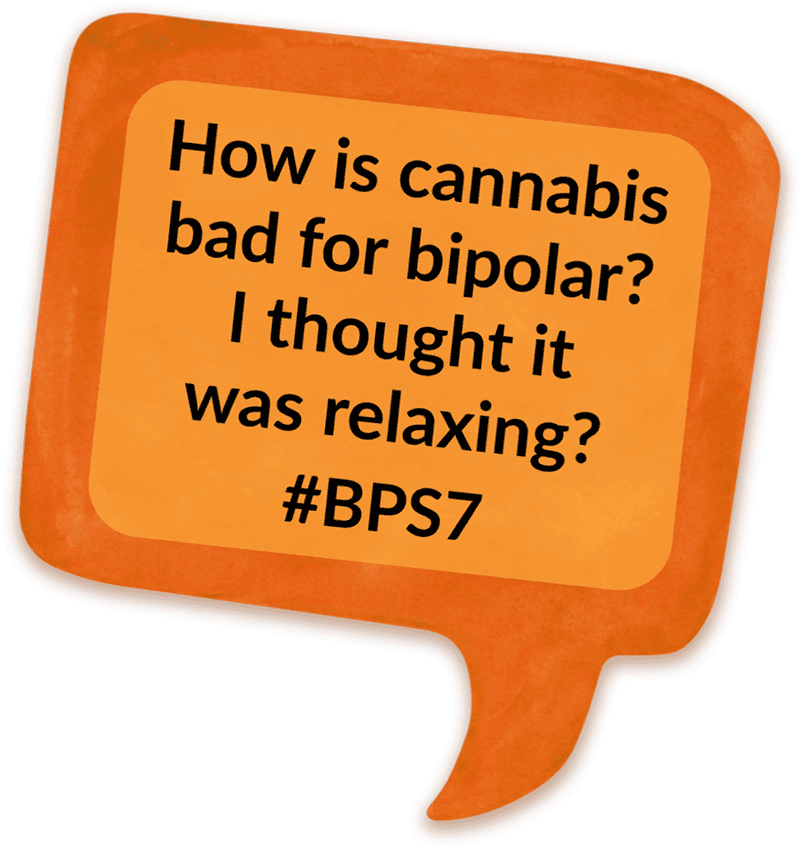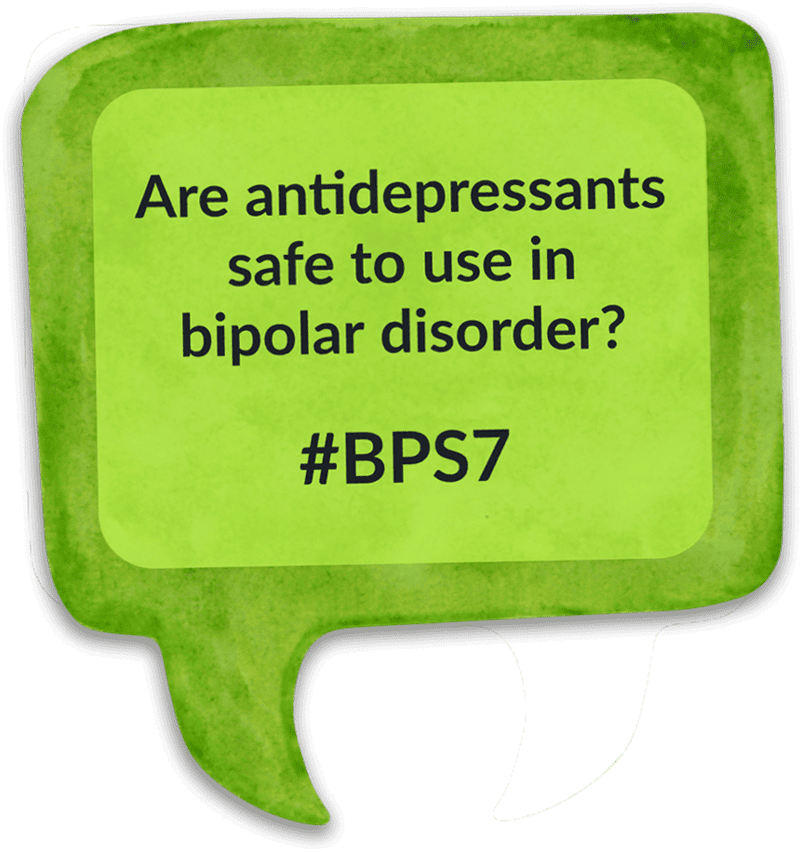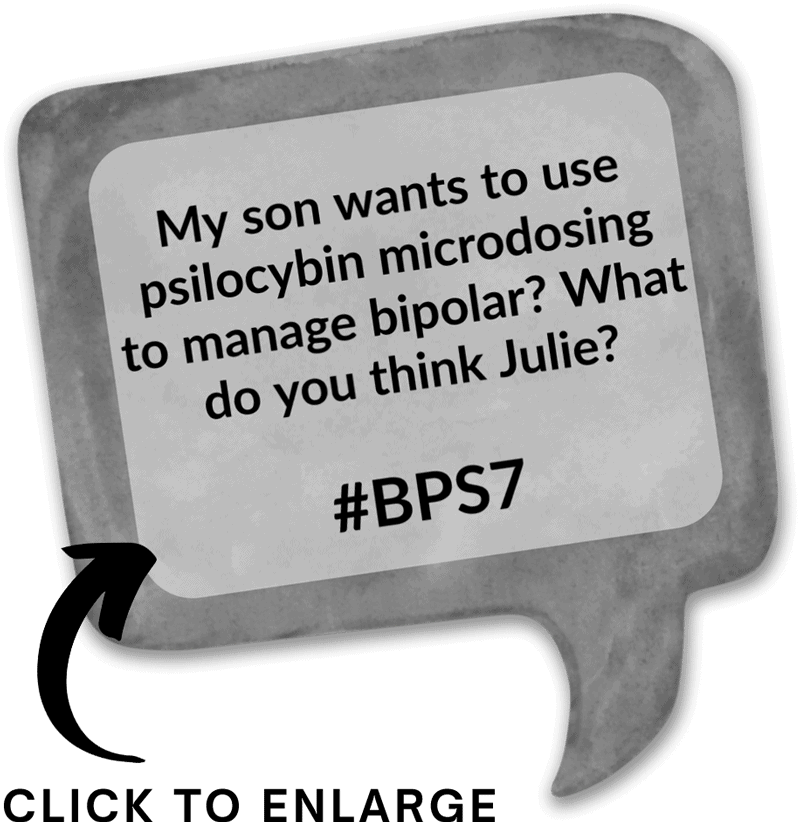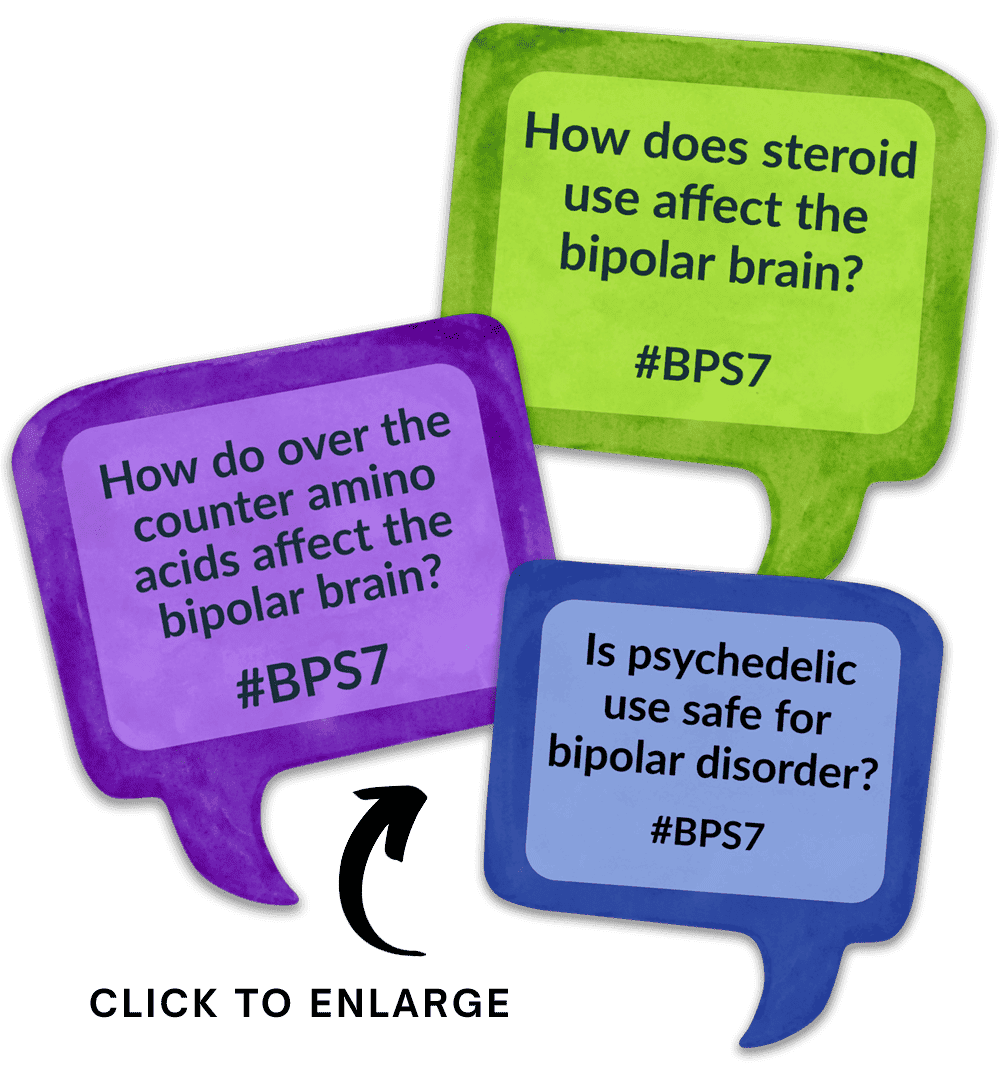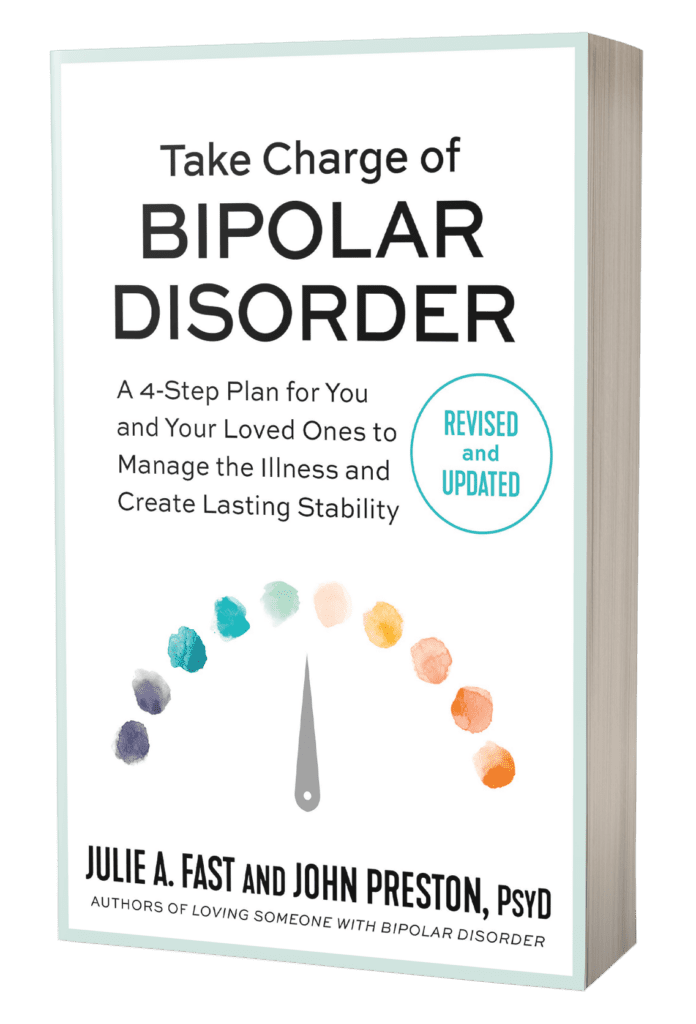
What is the Bipolar Significant Seven?
People with bipolar disorder have a bipolar brain. This means their brain reacts differently to substances that affect brain chemistry. Knowing what substances to avoid when you, a loved one or client have bipolar disorder is essential for brain health.
The Bipolar Significant Seven list was created by Julie A. Fast after 25 years of research regarding her own bipolar brain as well as her direct work with tens of thousands of people who have bipolar in their family tree as well as the family members, partners and healthcare professionals who care about someone with bipolar disorder and psychotic disorders.
The Bipolar Significant Seven information has been reviewed by Dr. John Preston, Dr. Jim Phelps and Dr. Jay Carter for accuracy and safety and is now available in Julie’s book Take Charge of Bipolar Disorder (second edition.)
You probably have many questions on this topic:

What happens when a person with bipolar disorder uses ADD medications?
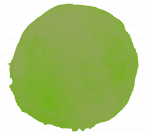
What is the effect of cannabis marijuana on the bipolar brain?
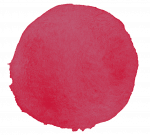
Why do so many medications create bipolar disorder symptoms?
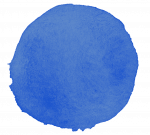
What is the brain chemistry behind the bipolar brain’s reaction to energy drinks and over the counter amino acid supplements?
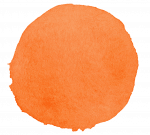
Are plant medicinals a viable treatment for bipolar disorder?

How do hormones and steroids and bipolar disorder management?

What if I need birth control or want to try IVF if I have bipolar disorder?

Why do so many natural treatments for bipolar disorder make bipolar disorder worse?

How can I protect my bipolar brain when I need surgery or have to take a prescription medication?
Yes, it is possible to learn what is safe and what needs to be used with caution when a person has bipolar disorder or there is bipolar disorder in the family tree. The following excerpt shares Julie’s plan to keep safe and stable while navigating the world of substances that can affect bipolar disorder.
A note from Julie:
I helped raise my nephew David. He comes from a family filled with bipolar disorder and I wanted to make sure he understood my mood swings and at the same time had a healthy interest in his own brain. I thought carefully about the timeline I would use to introduce the topic of brain health in a way that eventually helped him see the seriousness of my bipolar disorder and psychotic disorder diagnosis.
I am third generation bipolar that I know of. It is my life goal to make sure that David doesn’t use a substance that could activate his bipolar disorder genetics. For more information on this topic, here is an article that explains the concept of epigenetics and how you can use The Bipolar Significant Seven list to prevent substance induced bipolar disorder in the next generation.
Here is a video I recorded when David was six years old:
Good Intentions, Bipolar Results
It’s essential that you become a bipolar brain detective who investigates anything you put in and on your body to check for bipolar disorder safety. This is one of the most natural and inexpensive ways to prevent mood swings. You can be kind to yourself for being human and wanting to use substances to feel better and at the same time focus on finding relief in a way that doesn’t make your bipolar disorder worse. Your good intentions don’t have to create bipolar disorder results. You can address your very human needs in a way that maintains stability. Here are the categories in The Bipolar Significant Seven:
1. Stimulants
2. Hormones
3. Steroids
4. Prescribed Medications
5. Hallucinogenics
6. Supplements
7. Social drugs
The vast majority of the items in these categories have legitimate uses. The list is educational and intended for you, your loved ones, and your health care team to explore together. The substances on The Bipolar Significant Seven affect the neurotransmitters that affect the bipolar brain including serotonin, dopamine, norepinephrine, GABA, and acetylcholine. Once you have the information on how a substance might affect bipolar disorder, you can make a decision on whether to avoid or use a substance with care.
You Have a Bipolar Disorder Brain
Substances on The Bipolar Significant Seven list can be natural or synthetic. Your bipolar brain doesn’t differentiate between the two. Any substance on the list whether it be naturally grown or synthetically created can affect your bipolar brain by affecting brain chemistry. Health care professionals including western-based and natural-based professionals rarely have training on how these substances affect the bipolar brain. It might be the first time they see the list as well. You can learn about it together. You will need to be discerning when reading product marketing that claims a substance is great for depression, anxiety, focus problems, pain, muscle growth, or getting better sleep. You will very likely have to carefully wade through advice about substances from well-meaning friends and family who want you to “treat bipolar disorder naturally” without understanding the sensitive nature of your bipolar brain. Accepting this sets you free to see substances as potentially helpful for you, but only after you do the research into their safety for bipolar disorder.
Under each category there is a suggestion to either avoid the substance or use the substance with caution along with a plan to manage bipolar disorder symptoms. This usually includes talking with a bipolar disorder professional for guidance. Never forget, you decide what goes in and on your body. You can approach this chapter with the spirit of discovery. No one decides this for you. When you understand how substances affect your bipolar brain, you can make bipolar safe decisions and do what works for you.
David's Story:
Julie A. Fast's nephew Age 20
David wrote the following excerpt from Take Charge of Bipolar Disorder when he was 20. It hasn’t been edited- it shares his story of growing up with a healthy and age appropriate emphasis on brain health. He gave me permission to share his story with others. He’s a regular kid who has been taught about the brain from the beginning. It has made such a difference in our lives and I believe it protected him from substance induced bipolar disorder symptoms. Education is key and it starts with the knowledge in The Bipolar Significant Seven.
People with bipolar disorder can find stability. The number one way to prevent mood swings is to avoid the substances known to create mania, depression and psychosis. The Bipolar Significant Seven list from Take Charge of Bipolar Disorder makes it a lot easier to stay stable.
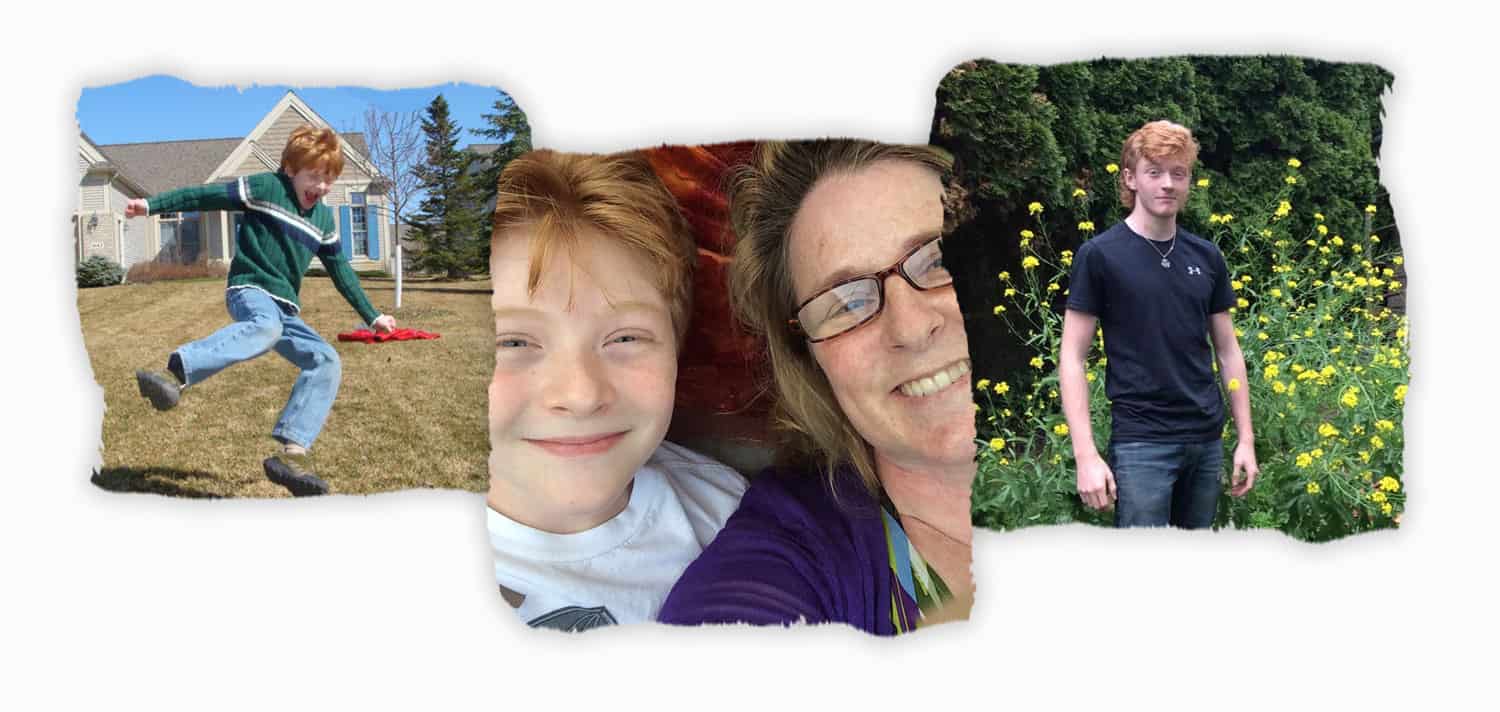
I remember Julie talking to me about depression at a very young age, probably seven or eight years old. She talked about her depression and gradually told me about my mom’s, dad’s, grandma’s, and eventually other people’s struggles with depression. This didn’t scare me. Julie made it clear this was about the brain and not something to be scared or ashamed of. As I got older, she taught me the signs of depression and how to help those who are in a downswing. This helped me understand the brain early on, and I would try and help Julie and my mom by being especially kind and helpful when I could tell they were depressed. She also taught me about mania and psychosis as I got older. The words bipolar disorder were very common in our family due to Julie’s work and her desire to stay well. I remember when Julie started talking to me about substances that can affect the bipolar brain. She did talk about avoiding antidepressants and steroids when possible, but the main ones I remember are THC and ADD meds. She did a great job talking about this without upsetting me. The reasoning behind the conversations was not for keeping me out of trouble and off weed. It was because of our family history of bipolar disorder. With Julie and other family members with bipolar disorder, it was and still is very likely for me to start showing symptoms if it is activated by a drug.I didn’t ever get tired or upset of Julie telling me this stuff. She probably helped me avoid getting substance activated bipolar.Now that I’m older and have had my own depression systems, Julie’s advice stays with me. I know what I can use to help the depression, but I can honestly say that without her teachings, I would have used the substances I now know could affect my brain and possibly start the bipolar. Julie probably prevented me from getting manic from a substance. I’m thankful. We can talk to kids about the brain. They will understand.


